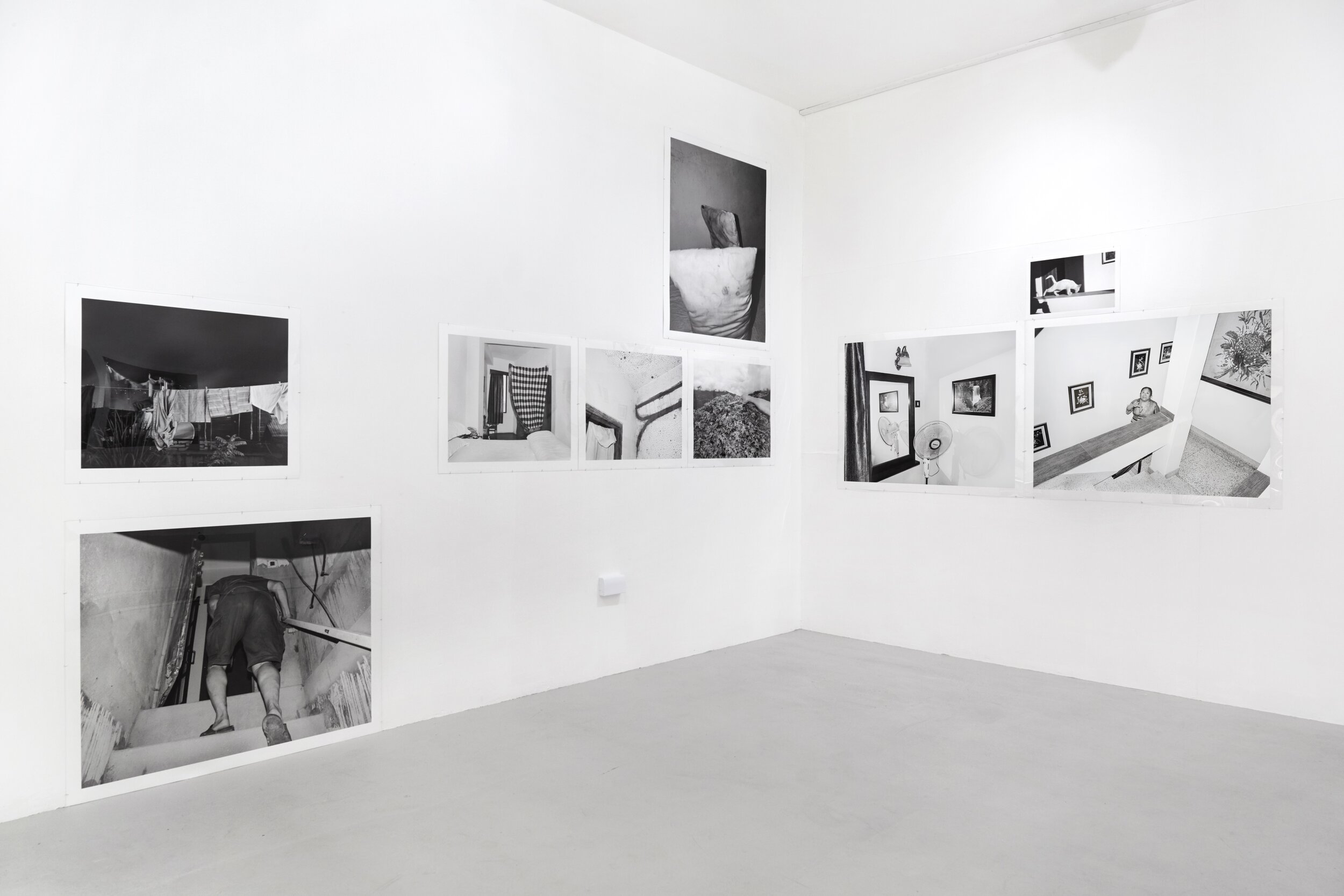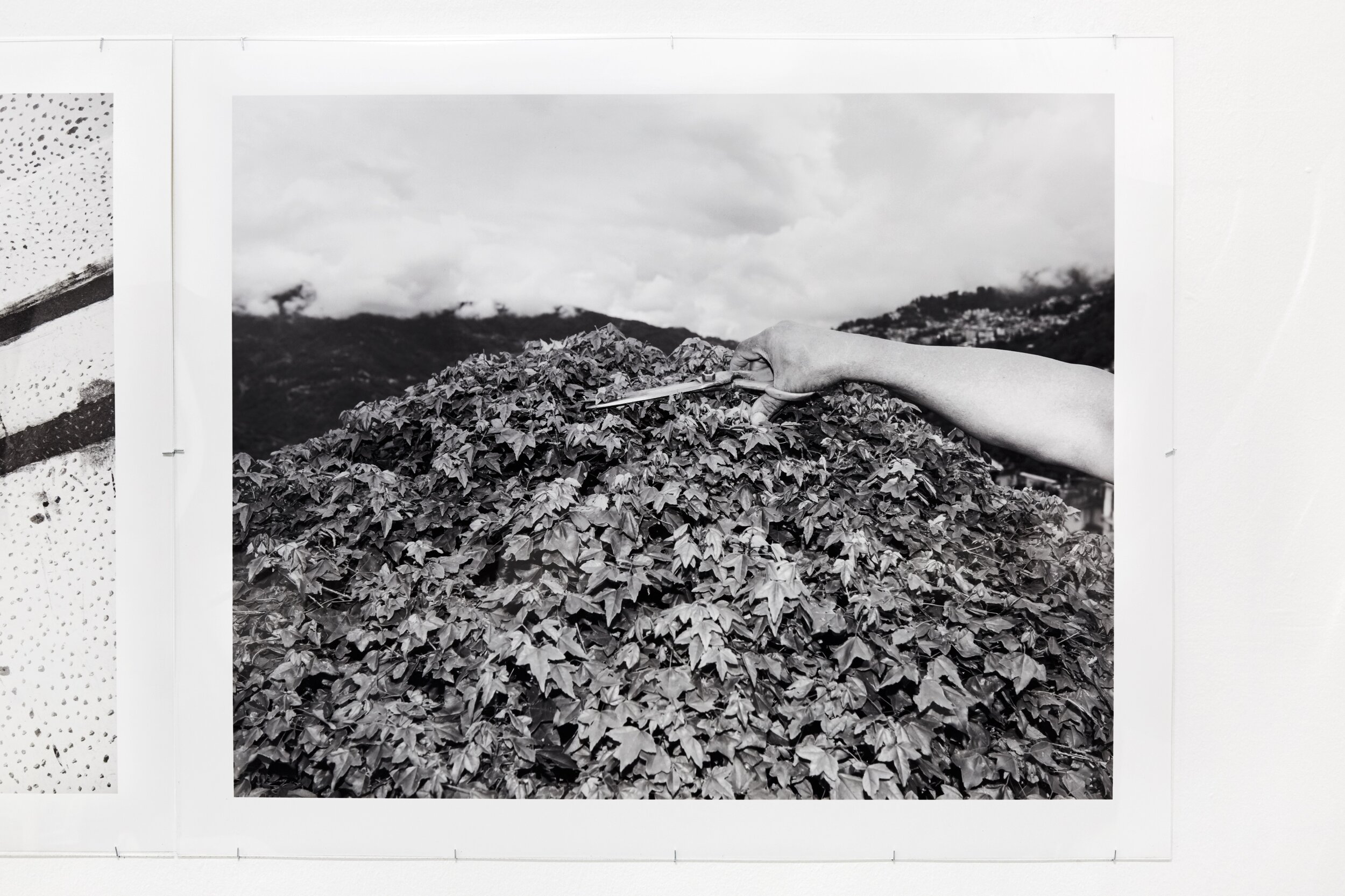tenzing dakpa: the hotel
30 may - 22 June 2019
indigo+madder is pleased to present The Hotel, the first solo exhibition of photographer Tenzing Dakpa. The compelling series of photographs features Dakpa’s family-run hotel in Sikkim, which is also his childhood home. Through the images, he creates a complex emotional and intellectual landscape which houses a series of ideas about family and home. Dakpa explores ideas of creating and returning home while simultaneously examining, collecting and coalescing his family’s experiences as inhabitants of this hotel. The photographs seem to capture a sense of belonging, which at times is interlaced with feelings of disjuncture.
The Hotel attempts to encapsulate and convey the space of home– comprising Dakpa’s arrival and stay, his cat’s meanderings around the premises, his parents’ and brother’s acts of maintenance and management, and their relationships with each other. A series of several quiet moments of contemplation and action, all in flux, seem to come together in this group of images. Overall, they capture a site where various social experiences manifest [1]. The hotel’s built-structure is imagined as a container of experiences, where there is an interplay between its implicit transience and actual memories of transitions, identities and hopes, creating a definite, cohesive site of history and meaning.
In this series, the idea of a hotel as a place of temporariness is also contrasted against ideas of home, comfort and family. Dakpa connects these ideas to his own migration away from home to study, travel and work around the world. As the only family member not involved in running the hotel, he negotiates feelings of detachment when he visits– it is at once a home and a place of impermanence. Complicating this, is also the desire to know his family, which is a primary instigator for this exploration of home. At a certain level, photography’s development was, and continues to be, propelled by a desire to confer immortality by reproducing the subject, and yet it paradoxically ends up capturing unfulfilled desires– to fully know the subject and ourselves. This tension is palpable in the series as it captures and reconstructs home.
Tenzing Dakpa (b. 1985) lives and works between Goa and New Delhi. He was born in Sikkim, India. Dakpa first moved to New Delhi to study graphic design at the College of Art, University of Delhi (BFA, 2009) and then to the United States, where he studied at the Rhode Island School of Design (MFA Photography, 2016). He was the recipient of a RISD fellowship between 2014-2016 and the T.C. Colley Scholarship for Excellence in Photography in 2015. His work is included in the book Photography and Tibet by Clare Harris, which is the first historical survey of photography in Tibet and the Himalayas.
In 2016, Dakpa was an artist in residence at the Center for Photography, Woodstock, NY. In 2018, The Hotel was shortlisted for the Mack First Book Award and won the Photobook Award at the Singapore International Photography Festival. It is due to be published by Steidl in 2019. Dakpa’s works have been exhibited at various art galleries and institutions including: Asia House, London in 2018; FotoFest Houston Biennial, Asia Society Texas Center (Texas) in 2018; Lamar Dodd School of Art, Athens, Georgia in 2016; Sol Koffler Gallery, Rhode Island in 2015; Woods Gerry Gallery (Rhode Island) in 2014; World Event Young Artists festival (Nottingham) and The Art Loft (Mumbai) in 2012.
INSTALLATION VIEWS
Short Clip: Relations
2019
Full HD video, 15:36 mins
This video brings together several scenes recorded during one of Dakpa’s visits home from New York, in the winter of 2015-16. Beginning with his family members preparing for bed one night, the video goes on to capture several moments during the course of a day at the family-run hotel in Sikkim. In one of the scenes, his brother seemingly breaks the fourth wall and addresses Dakpa, who is filming him, directly. He sleepily questions his choice of using a camcorder instead of a newer camera as a recording device. Other scenes include other such familial moments: his mother unwraps a bottle of perfume that he has just gifted her; his father playfully turns the tables, and points a camera towards Dakpa. All these unfold on his arrival, during a short visit home. Part documentary, and part performance, the film includes several snippets of recorded conversations in Tibetan, Nepali, Hindi and English.
While his parents’ and brother’s various acts of management and maintenance of the hotel are suggested throughout, the video focuses on several light-hearted moments of leisure, spent with family. The video records the moments that, for Dakpa, fall outside of the photographic frame– the ebb and flow of connections, the dynamics of inter-relationships, and even feelings of disconnect and boredom. Dakpa primarily hopes to subvert the act of recording and instead foreground, through a playful mode of performance, a sense of intimacy, curiosity, humour and togetherness, that characterise his interactions with his family and the hotel/home.
SELECTED WORKS

































